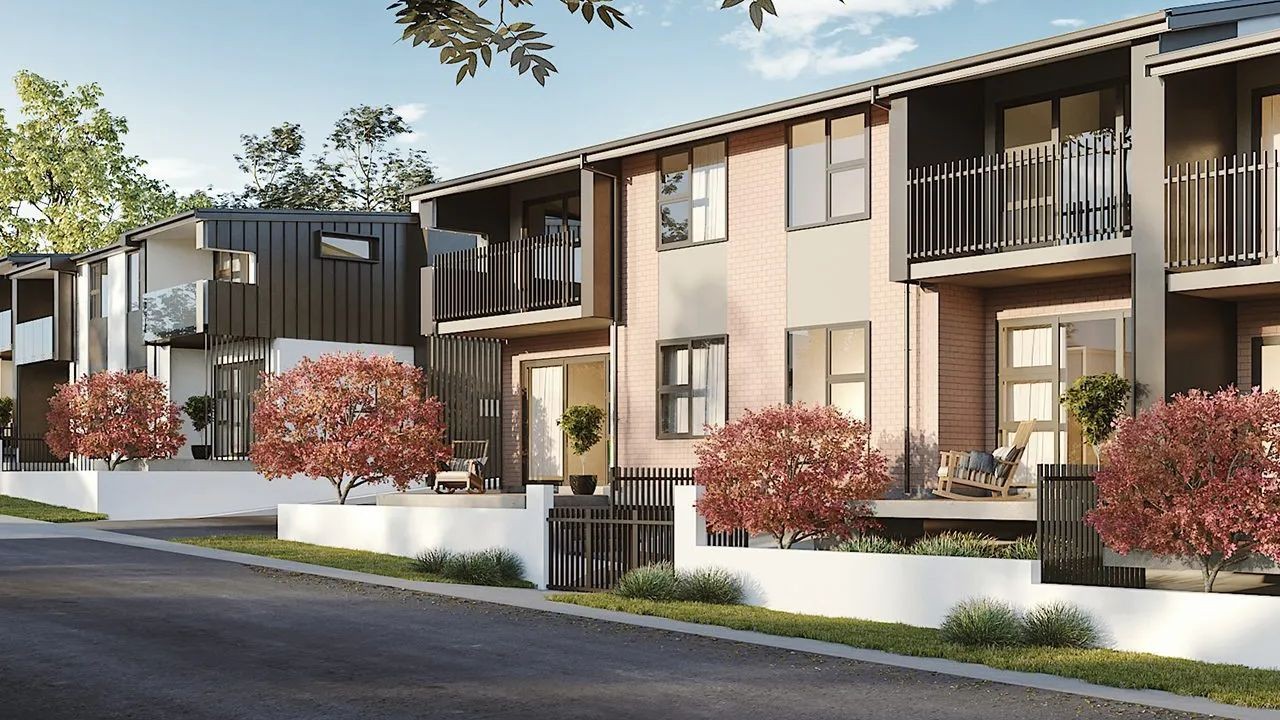New Zealand's housing crisis is a multifaceted issue that has persisted for years, leading to a shortage of affordable housing and skyrocketing property prices. The challenge is not just a matter of supply and demand but is intricately linked to economic policies, urban planning, and environmental sustainability. As an environmental researcher, understanding the complexities of this crisis is crucial to proposing viable solutions. The following analysis provides a comprehensive guide to addressing the crisis, featuring data-driven insights, local context, and actionable strategies tailored to New Zealand's unique circumstances.
Understanding the Scope of New Zealand's Housing Crisis
New Zealand's housing crisis is characterized by a significant disparity between the demand for housing and the available supply. According to Stats NZ, the country has seen a 27% increase in property prices over the past five years. This escalation has exacerbated affordability issues, particularly in urban areas like Auckland and Wellington, where the median house price now exceeds NZD 1 million.
Compounding the issue is the country's rapidly growing population, driven by both natural increase and immigration. As per the Ministry of Business, Innovation, and Employment (MBIE), New Zealand needs to build approximately 100,000 new homes over the next decade to meet the projected population growth. However, current construction rates fall short of this target, creating a persistent housing deficit.
Case Study: Auckland's Unaffordable Housing Market
Problem: Auckland, New Zealand's largest city, epitomizes the nation's housing crisis. The city's housing market has been characterized by rapid price increases and a significant shortage of affordable homes. A 2023 report by the Auckland Council highlighted that the average house price in the region has increased by over 30% since 2020, making it one of the least affordable cities in the world.
Action: In response to these challenges, the Auckland Council implemented the Auckland Housing Programme, aiming to accelerate housing development in the region. This program focuses on utilizing underdeveloped land, increasing housing density, and streamlining building consent processes to stimulate construction.
Result: Over the past two years, the Auckland Housing Programme has facilitated the construction of over 10,000 new homes, with a focus on affordable housing options. While this has made a dent in the housing shortage, the program needs further scaling to meet the continued demand.
Takeaway: The Auckland case highlights the importance of comprehensive urban planning and policy interventions in addressing housing shortages. By focusing on land use efficiency and regulatory improvements, other regions can replicate Auckland's approach to mitigate their housing issues.
Environmental Implications and Sustainable Solutions
The housing crisis is not only an economic and social issue but also an environmental one. Rapid urbanization and increased construction activities often lead to habitat destruction, increased carbon emissions, and resource depletion. To ensure sustainable development, it is crucial to integrate environmental considerations into housing solutions.
Promoting Eco-Friendly Building Practices
One of the key strategies to address the housing crisis sustainably is to adopt eco-friendly building practices. This includes using sustainable materials, implementing energy-efficient designs, and integrating renewable energy sources. A study by the University of Auckland found that homes built with sustainable practices can reduce energy consumption by up to 40%, significantly lowering the carbon footprint of new housing developments.
Comparative Analysis: International Approaches to Housing Solutions
Looking beyond New Zealand, several countries have implemented innovative strategies to tackle their housing crises, offering valuable lessons for local adaptation. For instance, Singapore has successfully addressed its housing shortage through the Housing and Development Board (HDB), which provides affordable public housing to over 80% of its population. Key to their success is the strategic use of government land and a strong public-private partnership model.
Similarly, Germany's rent control policies have maintained affordable housing by limiting annual rent increases. This regulatory approach has helped stabilize the housing market and protect tenants from excessive rent hikes.
New Zealand can draw inspiration from these international examples by considering a mix of public housing initiatives and regulatory frameworks to balance market dynamics and ensure housing affordability.
Myths and Misconceptions in Addressing the Housing Crisis
- Myth: "Building more houses will automatically solve the crisis." Reality: While increasing supply is crucial, a holistic approach addressing affordability, infrastructure, and environmental sustainability is necessary for long-term solutions.
- Myth: "Only urban areas are affected by the housing crisis." Reality: Rural and regional areas also face housing challenges, particularly in terms of quality and accessibility. Policies must cater to diverse geographic needs.
- Myth: "Rent control is the only solution to make housing affordable." Reality: Rent control can stabilize rents, but it must be complemented by supply-side measures to increase housing stock and maintain market balance.
Strategies for Solving New Zealand's Housing Crisis
Addressing New Zealand's housing crisis requires a multi-faceted approach that includes policy reforms, community engagement, and innovative construction techniques. Here are some key strategies:
1. Policy Reforms and Incentives
Government policies play a pivotal role in shaping the housing market. Reforms such as tax incentives for developers building affordable housing, streamlined approval processes, and zoning law adjustments can stimulate construction and make housing more accessible.
2. Innovative Construction Techniques
Embracing modern construction technologies, such as prefabrication and 3D printing, can reduce building costs and time. According to a report by the Reserve Bank of New Zealand, these technologies have the potential to decrease construction costs by up to 20%, making housing more affordable.
3. Community-Led Development
Engaging communities in the planning process ensures that housing developments meet local needs and preferences. Community land trusts and cooperative housing models empower residents to have a say in housing projects, promoting social cohesion and long-term sustainability.
Future Trends and Predictions
Looking ahead, New Zealand's housing market is likely to be influenced by several emerging trends. The increasing adoption of smart home technologies and the integration of digital platforms for property transactions will reshape how housing is developed and managed. Moreover, as sustainability becomes a central focus, green building practices and energy-efficient designs will gain prominence.
By 2030, it is predicted that over 50% of new homes in New Zealand will incorporate smart technologies, enhancing energy efficiency and reducing environmental impact. This shift will not only address the housing crisis but also align with the country's commitment to achieving net-zero carbon emissions by 2050.
Conclusion
Solving New Zealand's housing crisis is a complex challenge that requires a collaborative effort from policymakers, developers, and communities. By embracing sustainable practices, innovative construction techniques, and comprehensive policy reforms, New Zealand can pave the way for a more equitable and resilient housing market. The journey towards resolving this crisis is ongoing, but with strategic planning and commitment, a sustainable solution is within reach.
What are your thoughts on the proposed solutions? Share your insights and join the conversation!
People Also Ask
- How does the housing crisis impact New Zealand's economy? The housing crisis affects the economy by increasing living costs, reducing disposable income, and limiting workforce mobility, according to the Reserve Bank of NZ.
- What are the biggest misconceptions about solving the housing crisis? A common myth is that more construction alone will solve the crisis. However, sustainable planning and policy reforms are equally crucial, as noted by MBIE.
- What strategies are effective in addressing housing shortages? Key strategies include policy reforms, innovative construction techniques, and community-led developments, which collectively address affordability and sustainability.
- What future changes could affect New Zealand's housing market? By 2030, smart technologies and green building practices are expected to dominate, driven by sustainability goals and technological advancements.
Related Search Queries
- New Zealand housing crisis solutions
- Sustainable housing development in NZ
- Innovative construction techniques NZ
- Urban planning and housing affordability
- Government housing policies New Zealand
- Community land trusts NZ
- Green building practices New Zealand
- Smart home technologies NZ































